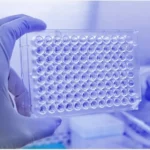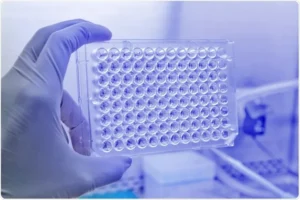Many people are prepared to attempt any tactic to become in shape quickly. Are you one of them? If you’re, then read on!
Protein drinks have long been considered necessary following a workout. However, many people are now using pre workout powder in addition to protein drinks. These are advertised as being able to accelerate your workout by enhancing energy, metabolism, and muscular growth.
Despite the enormous demand for pre-workout supplements, lack of research, product variances, and confusion about what they include make it impossible for customers to know how effective they are – and whether they accomplish what they claim to do.
Here are a few components a pre-workout powder can contain.
1. Caffeine
One of the primary elements in pre-workout is the same chemical found in your morning coffee.
Caffeine’s effects are likely recognised from caffeinated beverages. However, the amount in pre-workout supplements is sometimes significantly higher, taking these advantages to the next level.
Caffeine has been shown in studies to improve muscular strength and endurance, increase blood flow, and reduce the impression of effort. Simply defined, it implies you can perform more throughout your workout without feeling like you are exerting a significant amount of effort.
2. Amino Acids With Branched Chains
Another popular element is branched-chain amino acids (commonly known as BCAAs). They’re found in foods like dairy, beef, and legumes, and they’re also used in pre-workout supplements to help muscle development and exhaustion.
BCAAs are found in most pre-workout supplements in amounts ranging from 400mg to 1500mg. However, there is no evidence that they are beneficial in increasing muscle development or lowering tiredness at these dosages.
In reality, to increase muscle development and repair, BCAAs are usually given in considerably larger dosages (about 5,000mg) after exercise.
3. Beta-Alanine
The amino acid beta-alanine is produced naturally by your body. It produces a molecule called carnosine in conjunction with other substances in the body. Carnosine is a nutrient that is stored in your muscles and has a role in regulating the acidity level of the muscle, which can help you avoid tiredness during high-intensity exercise.
As a result, beta-alanine is commonly included in pre-workout supplements. Research has shown that beta-alanine supplements help. However, you’d need to take at least 3.6 grams per day for up to six weeks to see any results. Most pre-workout products only offer 350mg-3,200mg.
Aside from the tingling side effect that some individuals experience, which may lead them to believe it’s working. There’s no proof that taking modest doses before a workout has any effect.
4. B Vitamins
B vitamins may be found in a variety of foods, including fish, poultry, and dairy. B vitamins are used in many pre-workout supplements because they aid in the production of energy, which can help us perform better throughout a workout.
However, unless a person is lacking in these vitamins, taking a supplement containing them is unlikely to be beneficial — though activity may increase the demand for some B vitamins, particularly B2 and B6.
Conclusion
When it comes to picking a pre-workout powder, you should base your decision on your training objectives. Knowing what to look for and what each component accomplishes is the first step toward making an informed decision that will benefit you and help you achieve your fitness goals.
Also Read: Times When Visiting A Cosmetic Dental Doc Is The Best Thing To Do



























+ There are no comments
Add yours